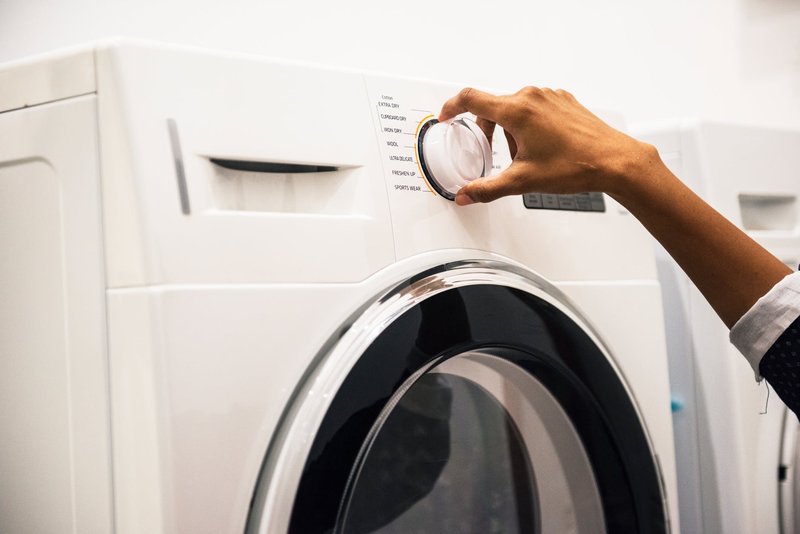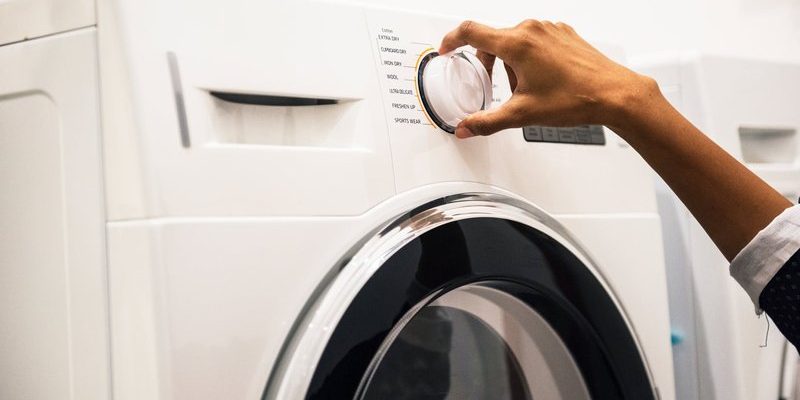
Imagine you just moved into a new apartment and found the laundry machines already set up—an Amana washer and dryer, gleaming and ready to go. But then you wonder: can you, as the tenant, register these appliances to get warranty benefits or customer support? Or is that exclusive to the landlord who bought them? It’s like inheriting a gadget but not being sure if you can claim the warranty or get help when something goes wrong.
Honestly, the question about whether tenants can register Amana laundry appliances that were purchased by the landlord isn’t as straightforward as you’d expect. It’s tied up in ownership rules, warranty policies, and how manufacturers like Amana handle registrations. So let’s break it down carefully, step by step, to clear up the confusion.
Understanding What Appliance Registration Means
Here’s the thing: when you register an appliance like an Amana washer or dryer, you’re essentially telling the manufacturer, “Hey, I own this product,” so they can provide warranty coverage, send updates, or offer customer support if you need troubleshooting help later. This registration often requires details like the model number, serial number, and the buyer’s contact information.
But the tricky part is that the official registration is often linked to the original purchaser—the person or entity who bought the appliance. For landlord-purchased appliances, that means the landlord’s name and address go into the system. In other words, the warranty and registration are typically tied to the landlord rather than the tenant living there.
Why does this matter? Because warranty service sometimes requires proof of purchase or original registration. If you’re the tenant and something goes wrong with the Amana laundry machines, the manufacturer might ask for proof that you own or are authorized to use the appliance—which can get complicated.
Can Tenants Register Amana Appliances Themselves?
So, can tenants just take the ball and run with it? Can they register the appliances in their own name without landlord involvement? The short answer is: usually, no.
Most appliance companies, including Amana, expect the person who bought the appliance to register it. If you’re renting and the landlord bought the machines, the landlord’s name is the official registered owner. That means tenants typically don’t have the ability to register the appliances themselves, unless the landlord transfers the registration or ownership.
Think of it like a car—you can drive it, but the registration is in the owner’s name. If you want to register the car in your name, the owner has to sign it over. Same with appliances: tenants can use them, but the “official owner” for warranty and support remains the landlord.
How Does Amana’s Warranty Work for Tenant-Used Appliances?
Amana warranties usually cover repair or replacement for defects based on the original purchase date. However, they also expect the warranty to benefit the registered owner or buyer. So if a tenant uses the Amana washer and dryer, the warranty still applies, but the landlord is technically the covered party.
This can raise questions during repairs or troubleshooting. For example, if the machine breaks down, Amana customer support might require the landlord’s information to validate the warranty. Sometimes tenants struggle because they don’t have the original purchase receipt or registration details.
Here’s a little tip: many landlords register the appliances themselves and keep the paperwork handy. If you’re a tenant, it’s a good idea to ask your landlord to share warranty information or direct you on how to get help if the machines act up.
What Should Tenants Do to Access Warranty and Support?
If you’re renting and want to make sure you can get assistance with Amana laundry appliances, here’s what you can do:
- Communicate with your landlord: Ask if the appliances are registered and where the warranty papers are. Sometimes landlords hold onto these but are willing to share.
- Request permission to contact support: If something breaks, your landlord might need to call Amana or authorize service under their registered account.
- Keep appliance details handy: Note down model and serial numbers. They’ll be key for any repair calls or troubleshooting.
Honestly, it’s about teamwork. You’re the user, the landlord owns the machines, and the manufacturer supports the registered owner. Making sure everyone’s on the same page simplifies the process when you need help.
Can Landlords Transfer Registration or Ownership to Tenants?
Here’s an interesting thought—can a landlord hand over the registration so a tenant can register Amana appliances in their own name? It’s possible, but not very common.
Amana’s system and warranty terms generally tie registration to the original purchaser. Transferring registration is usually limited to transferring ownership of the appliance itself, which would require selling or gifting the machines. For rental situations, this kind of transfer usually doesn’t happen because the landlord still owns the property and appliances.
That said, if a landlord sells the unit or the appliances directly to the tenant, the registration might be updated. But in standard renting cases, the landlord keeps ownership and the registration remains under their name.
What About Troubleshooting and Resetting Amana Appliances as a Tenant?
Now, what if something goes wrong and you need to troubleshoot or reset the machines? You might not need to worry about registration here at all.
Amana laundry units often allow basic troubleshooting steps like running diagnostic cycles, resetting power, or replacing batteries in control remotes (if applicable) without needing account registration. You can usually fix minor glitches just by following the manual or Amana’s online support resources.
However, for warranty-covered repairs or major issues, you’ll likely need the landlord’s involvement to verify ownership and registration. So knowing how to handle common problems yourself can save time while you coordinate warranty service through your landlord.
Are There Alternatives to Registering Amana Appliances if You’re a Tenant?
Since tenants generally can’t register landlord-purchased appliances, you might wonder if there are workarounds:
- Universal appliance protection plans: Some third-party companies offer coverage even if you’re not the registered owner. These plans might work for rentals.
- Landlord-arranged warranties: Occasionally, landlords buy extended warranties that cover tenants. That way, repairs are smoother without transfer hassles.
- Simply using manufacturer support without registration: Sometimes you can get help or troubleshooting tips directly from Amana without formal registration, especially for common issues.
Each option has pros and cons, but knowing what you can do without registration helps manage expectations when renting.
Why It Matters to Understand Registration Rights for Rental Appliances
You might be thinking, “Why all this fuss about registration?” Here’s the thing: understanding who can register and who owns the warranty helps avoid headaches down the road.
Ever tried fixing a broken appliance only to be stuck because you don’t have the right paperwork or contact info? That’s frustrating. Knowing that the landlord controls registration tells you how to navigate repairs, service calls, or even just getting replacement parts.
Ultimately, it’s about making sure your laundry routine doesn’t get interrupted. When you know how registration works and who handles it, you can plan ahead and avoid surprises.
Getting your landlord involved early on in appliance warranty questions can save you a lot of hassle later—and keep your laundry days stress-free.
Wrapping It Up: Tenant Registration of Amana Laundry Appliances
So, can tenants register Amana laundry appliances purchased by landlords? Usually not. The official registration belongs to the purchaser—the landlord—and that’s how warranty and support are managed. While tenants can use and maintain the appliances, registering them in their own name typically isn’t an option unless there’s a transfer of ownership.
That said, tenants don’t have to feel powerless. By communicating openly with landlords, knowing key appliance info, and handling basic troubleshooting, renters can keep their laundry running smoothly. And if bigger repairs come up, relying on the landlord’s registration ensures warranty coverage stays intact.
Think of it like borrowing a friend’s car—you can drive it and enjoy it, but the registration and insurance are still in their name. It’s all about teamwork and clear communication to keep things working.
